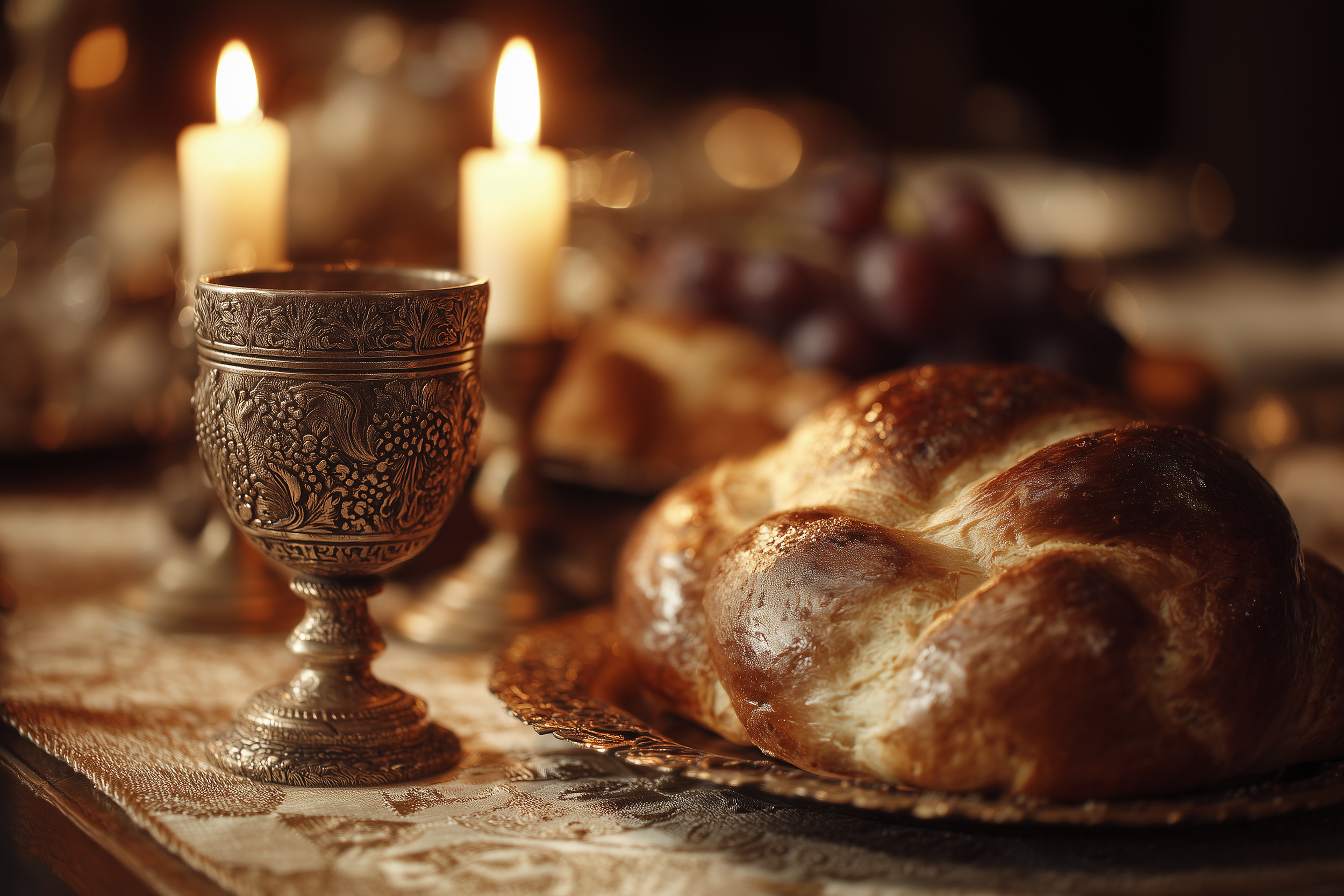Articles to Inspire & Challenge
Read along as we share our writings of what God is teaching us as we live in His Kingdom.
Filter by Category: View All | Biblical Feasts | Sabbath | Torah Portions
2026 Messianic Jewish Holidays
In this article, we’ll dive into the 2026 dates of the Biblical Feasts and when the Jewish community and Messianic believers worldwide celebrate these incredible appointed times. From Sabbath to Passover, from Yom Kippur to Sukkot, these Jewish holidays are rich with Messianic significance.
Simchat Torah: Rejoicing in God’s instructions
Have you ever experienced a Simchat Torah celebration?
Simchat Torah is Hebrew for "Joy of the Torah." In Israel it's combined with Shemini Atzeret (the eighth day assembly). It's the eighth day and final day at the end of seven days of Sukkot.
Hoshana Rabbah, Yeshua, and the water drawing ceremony of Sukkot
Hoshana Rabbah is an ancient Jewish custom of drawing water that took place on the seventh day of the festival of Sukkot (Also known as the Feast of Tabernacles.) The name means "The Great Salvation."
Shabbat Shuvah is a wake up call to return to the God who loves us
We're in the middle of the 10 Days of Awe and today is Shabbat Shuvah, the Sabbath day between Rosh Hashanah and Yom Kippur.
Teshuvah (תשובה) means to return.
What kind of God is this who forgives and makes a way?
How to celebrate a Messianic Rosh Hashanah (The Feast of Trumpets)
Rosh Hashanah, also known as the Feast of Trumpets is the first of the fall feasts of Israel. Mentioned in Leviticus 23, the biblical name is Yom Teruah, a Hebrew word that literally means day of blasting or shouting.
Learn how you can celebrate the Feast of Trumpets!
A blessing or a curse — what do you believe about the Torah?
If the blessing is in keeping the commandments of God, how would it make sense that Jesus' purpose was to do away with the Torah?
Let’s take a look at what the “Old Testament” has to say about God’s instruction!
What are the three Jewish fall feasts?
In the fall, there are three Jewish fall feasts, also known as “The High Holidays.” These biblical festivals include Yom Teruah (Rosh Hashanah), Yom Kippur (The Day of Atonement), and Sukkot (The Feast of Tabernacles. These are “moedim” or appointed times where God wants to meet with you!
The King is in the Field: How the month of Elul anticipates the fall feasts
The month of Elul is the 11th month on the Hebrew calendar and it’s a special 30 days that escorts us into the Jewish new year while also connecting us to Yom Kippur, the Day of Atonement.
Learn how this ancient Jewish idea of the king is in the field can lead us to return to a God who loves us.
What does it mean to Remember and Keep the Sabbath?
In this week’s Torah portion, Remember and Keep are two words used to instruct Israel about the Sabbath.
What is the difference?
Here's what I discovered.
Should Christians Keep the Sabbath?
Is it possible that we have missed God’s intention of the Sabbath for the last two thousand years?
What if Jesus didn’t do away with the Sabbath, but instead showed us the true meaning of the seventh day?
What would it look like for us to enter into that rest?
Messianic Kiddush Prayers for the Sabbath
On Friday evening, the Sabbath (Shabbat in Hebrew) traditionally starts with a collection of Jewish prayers called “Kiddush”. These Messianic Kiddush prayers are a beautiful way to usher in Sabbath and set it apart from the rest of the week.
The Moment I Realized NOTHNG Can Separate Us From God's Love (The Story of Hosea)
In the Haftarah of the Torah portion Bamidbar (Wilderness), we discover the story of Hosea and Gomer.
This wild story is a testimony of God's faithfulness to His people, and reminder that NOTHING can separate us from His love.
The Torah Portion: An ancient Jewish practice of reading the Bible
Long before Christianity emerged, an ancient Jewish practice developed of reading through the Bible regularly so that people would know, understand, and internalize God’s instructions.
Learn how this structured reading plan, called the Parashah or Torah Portion can help you understand the Bible like never before.
What does the story of Ruth teach us about God’s Redemption?
The story of Ruth is read during the Jewish festival of Shavuot, but this seemingly small story gives us a huge message about God’s faithfulness to gentiles who put their trust in the God of Israel.
What does the Jewish Feast of Pentecost (Shavuot) celebrate?
Did you know that Pentecost, mentioned in Acts 2, is intimately connected to an ancient Jewish festival called the Feast of Weeks (Shavuot in Hebrew)? Learn how this monumental event connects to the Hebrew Bible and fulfills several Messianic prophecies.
Our obedience is our strength — a lesson from Sampson
Does God care about our obedience?
There's a story in the Hebrew Bible, in the book of Judges about a prophecy delivered by an angel to an infertile family, that they would have a son who would begin to defeat the Philistine enemies of Israel. This is the story of Sampson.
How does the feast of firstfruits connect to the resurrection of Jesus as Messiah?
Christians all over the world celebrate Resurrection Sunday, often connected with Easter, the day when Jesus rose from the dead.
But did you know it’s also connected to an ancient Jewish festival called the Feast of Firstfruits?
Passover: a time to remember God’s redemption in your life
In the Bible, there’s a story many of us are familiar with, where God shows this power over the Egyptian gods, culminating in the Passover and rescue from Egypt across the red sea.
But quickly they forgot his deliverance. Are we much different today? How can we remember?
Finding Jesus in the Jewish holiday of Passover
Christians celebrate communion often, but did you know it’s directly connected to the Jewish festival of Passover? When Jesus said “Do this in remembrance of me,” it was part of a Passover Seder meal that He was having with His Jewish disciples. What should followers of Jesus do with this biblical holiday?
Rediscovering the joy of Sabbath rest.
Have you ever sabbathed?
I mean really sabbath.
In our journey as Christians, we shed our love of Sabbath, rooted in ancient Jewish culture for the modern convenience of productivity and grace.





















